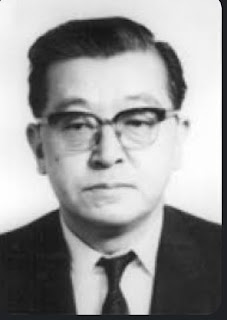KAORU ISHIKAWA BIOGRAPHY AGE, EARLY LIFE, CAREER, ACHIEVEMENT AND LIFESTYLE
Kaoru Ishikawa was a renowned Japanese organizational theorist, professor, and quality management expert, widely regarded for his contributions to the development and implementation of quality control methodologies. Born on July 13, 1915, in Tokyo, Japan, Ishikawa’s work profoundly influenced industries worldwide, particularly in the realm of Total Quality Management (TQM) and quality control practices. His innovative approaches and theories continue to shape modern management practices and serve as pillars in the field of quality management.
EARLY LIFE AND EDUCATION
Kaoru Ishikawa grew up in Tokyo during a period of significant transformation in Japan. He witnessed Japan's transition from a traditional society to a modern industrialized nation. His early experiences instilled in him a deep sense of commitment to excellence and continuous improvement, values that would later define his professional career.
Ishikawa's academic journey began at the University of Tokyo, where he pursued a degree in applied chemistry. It was during his studies that he developed a keen interest in statistical quality control methods pioneered by figures such as W. Edwards Deming and Joseph M. Juran. Inspired by their work, Ishikawa delved deeper into the principles of quality management, laying the foundation for his future contributions to the field.
CAREER AND CONTRIBUTIONS
After completing his education, Ishikawa embarked on a distinguished career that spanned academia, industry, and government service. He joined the Union of Japanese Scientists and Engineers (JUSE), where he played a pivotal role in promoting quality management practices across Japan. As a professor at the University of Tokyo, Ishikawa also shared his knowledge and expertise with future generations of leaders and practitioners.
Ishikawa's most notable contribution to the field of quality management is his development of the Ishikawa diagram, also known as the fishbone diagram or cause-and-effect diagram. This graphical tool provides a systematic way of identifying and analyzing the root causes of problems, enabling organizations to address underlying issues more effectively. The Ishikawa diagram remains a cornerstone of quality improvement methodologies and is widely used in various industries worldwide.
In addition to the Ishikawa diagram, Ishikawa also emphasized the importance of employee involvement and teamwork in achieving quality excellence. He championed the concept of "total quality control," which emphasizes the collective responsibility of all employees in maintaining and improving product and service quality. Ishikawa believed that by empowering workers and fostering a culture of continuous improvement, organizations could achieve higher levels of performance and customer satisfaction.
Throughout his career, Ishikawa published numerous books and articles on quality management, including his seminal work, "Guide to Quality Control." He also served as president of the International Academy for Quality and received numerous awards and honors for his contributions to the field.
LEGACY
Kaoru Ishikawa's legacy extends far beyond his lifetime, as his ideas and methodologies continue to influence organizations worldwide. His emphasis on customer focus, employee involvement, and continuous improvement laid the groundwork for modern quality management practices such as Six Sigma and Lean manufacturing.
Today, Ishikawa's principles remain relevant in industries ranging from manufacturing and healthcare to software development and service organizations. His emphasis on problem-solving, data-driven decision-making, and teamwork continues to inspire leaders and quality professionals seeking to achieve excellence in their respective fields.
In recognition of his enduring contributions to quality management, Kaoru Ishikawa is remembered as one of the foremost pioneers in the field. His legacy serves as a guiding light for future generations of leaders and practitioners committed to the pursuit of quality and continuous improvement.
CONCLUSION
Kaoru Ishikawa's life and work exemplify the power of visionary thinking and relentless pursuit of excellence. Through his innovative ideas and practical methodologies, he transformed the way organizations approach quality management, leaving an indelible mark on the business world. As we reflect on Ishikawa's legacy, we are reminded of the importance of continuous improvement, teamwork, and customer focus in achieving sustainable success. His teachings continue to inspire and empower individuals and organizations worldwide, ensuring that his impact will be felt for generations to come.












0 Comments